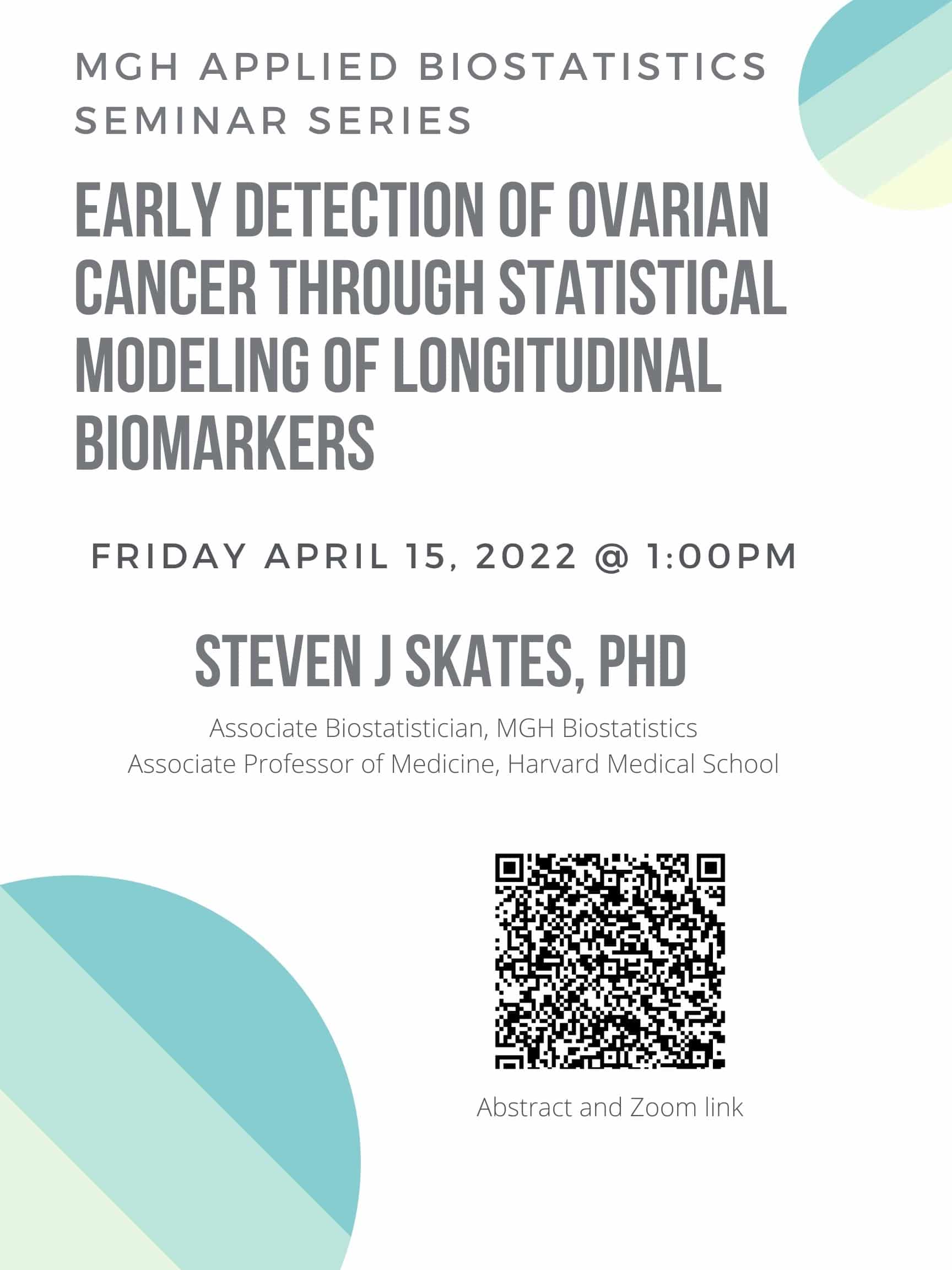Please join us for the next installment of the MGH Biostatistics Applied Biostatistics Seminar Series, a new seminar series designed to introduce researchers to intermediate topics that are highly relevant to clinical biostatistical research. Presenters will join us on every 3rd Friday of each month to introduce us to their area of expertise and motivate the use of these methods with concrete clinical examples.
Early Detection of Ovarian Cancer through Statistical Modeling of Longitudinal Biomarkers
Friday April 15, 2022, 1:00-2:00pm
https://partners.zoom.us/j/82231967249
Speaker: Steven J. Skates, PhD, Associate Biostatistician at Massachusetts General Hospital and Associate Professor of Medicine at Harvard Medical School.
Abstract: Ovarian cancer (OC) is a prime target for early detection due to a high proportion of cases detected in late-stage disease and a large difference in prognosis between patients detected in early stage compared to late-stage detection. However, the low annual incidence of OC presents a serious medical and statistical challenge – how to detect the cases as early as possible in time without generating too many false positives potentially resulting in surgical interventions. A pilot trial of 1,000 women detected one ovarian cancer using a then recently discovered ovarian cancer serum biomarker CA125 with a single threshold and referral to ultrasound if positive. The CA125 profile over time in the case was striking with an exponential growth in distinct contrast to the relatively stable CA125 profile in all other subjects. Subsequent larger pilot trials showed a similar phenomenon. The statistical challenge was how to use the extra information in the CA125 profile to increase sensitivity in early stage while maintaining the same low and acceptable false positive rate. We developed a calculation for the probability of having undetected OC given a series of CA125 values built on a longitudinal change-point model for OC cases and from a longitudinal flat model for controls. This calculation replaced the single CA125 threshold for screening decisions. We implemented the calculation in five prospective early detection trials in the US and UK, including a 20-year RCT of over 200,000 women. Results from the five trials were mixed, with a negative result in the largest trial but encouraging results in the other trials. We reflect on the current state of the field and describe a parallel biomarker discovery and validation program to identify novel biomarkers and approaches that may improve on the longitudinal serum CA125 approach to early detection of OC.
This will be a virtual event. Please contact tthaweethai@mgh.harvard.edu with any questions.
Upcoming seminars:
Thursday May 19, 2022 (12-1pm): Alexia Iasonos, Attending Biostatistician, Memorial Sloan Kettering Cancer Center


